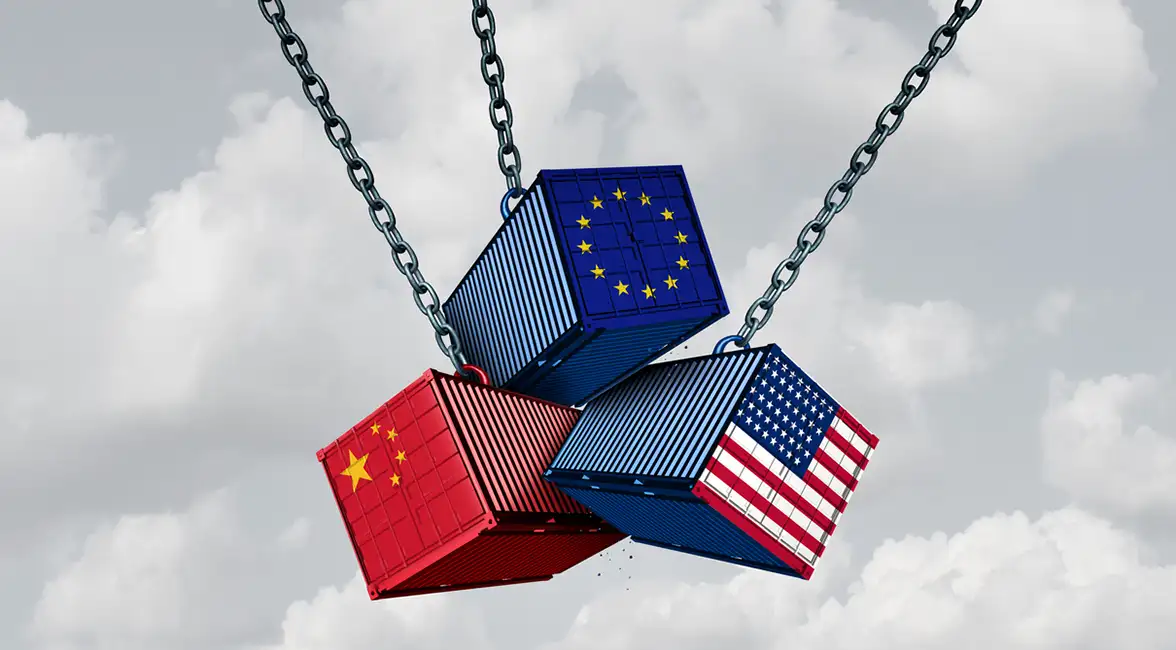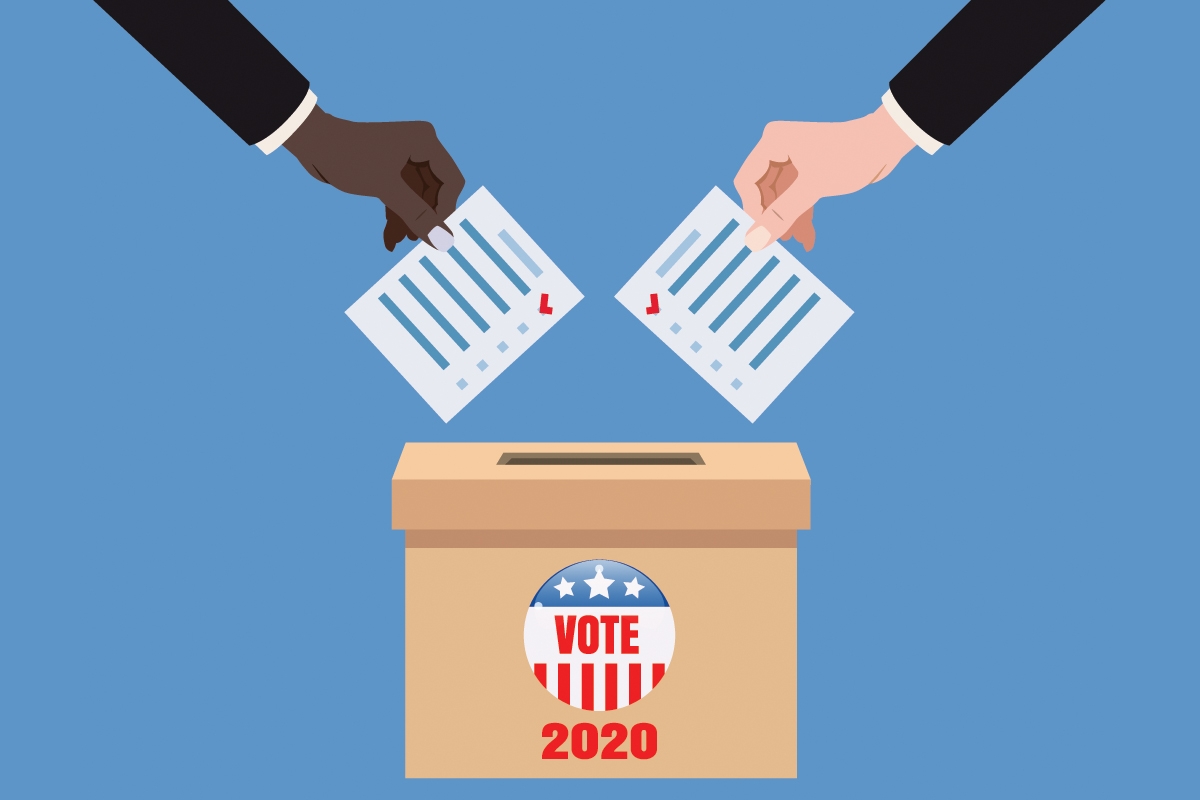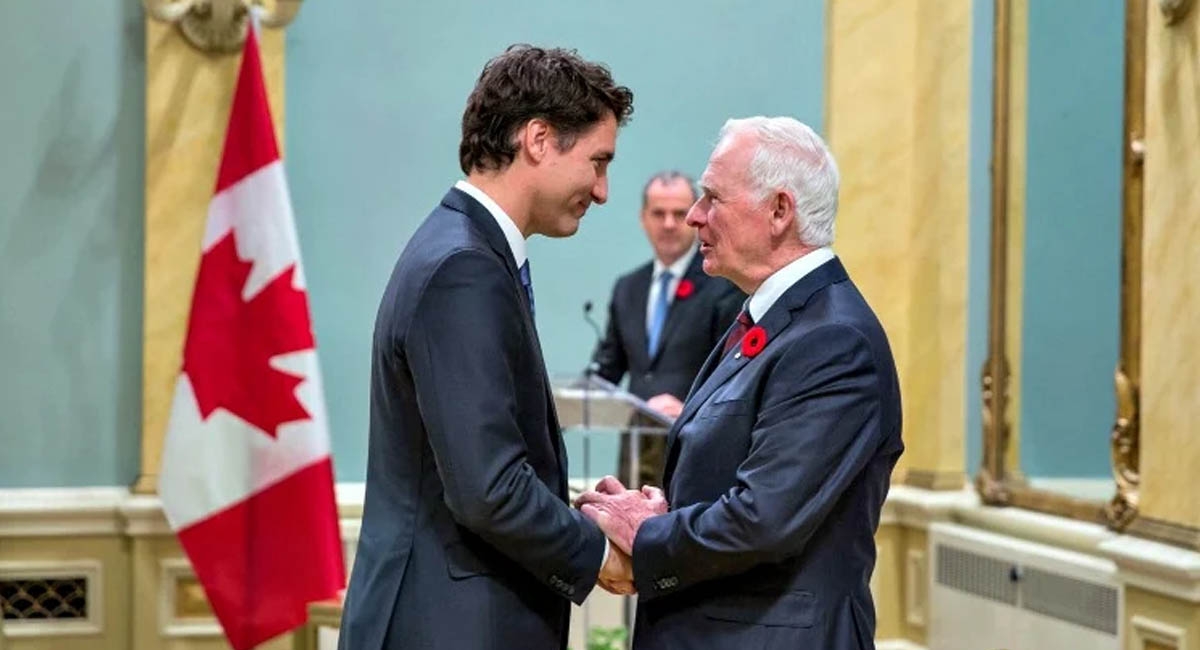
Tariffs and Tensions: How China’s Counterpunch Against U.S. Tariffs Could Shift Global Trade
by Xiao He, Senior Research Fellow, Institute of World Economics and Politics, Chinese Academy of Social Sciences
On April 2, the Trump administration unexpectedly pressed what many are calling the “tariff nuclear button.” Not only did the United States impose a blanket 10 percent tariff on all imports, it also singled out roughly 60 economies for significantly higher “reciprocal tariffs.” China and the European Union—long in Washington’s crosshairs—were hit with rates of 34 percent and 20 percent, respectively. Southeast Asian neighbours fared worse: Cambodia, Laos, Vietnam, and Myanmar faced tariffs ranging from 44 percent to 49 percent. Even Australia, a close U.S. ally with a trade surplus favourable to Washington, was not spared. Canada and Mexico, while not on the new list, had already been subjected to 25 percent tariffs prior to what the White House dubbed “Liberation Day.” In effect, no country was truly exempt.
The rationale behind these tariffs was, to put it mildly, baffling. U.S. trade experts quickly pointed out that the administration calculated a country’s tariff rate by dividing the U.S. trade deficit with that country by the volume of imports from it—a method dismissed by many economists, including many American scholars as “nonsense” and “unprecedented.”
Yet what’s worse is that imposing arbitrarily high tariffs on other countries is only part of the story. If the U.S. government were genuinely pursuing economic isolationism—severing itself from the global economy through irrational tariffs—then, while unwise and harmful to both its own economy and the global community, it might still be within its sovereign rights to do so. The real danger, however, is that the U.S. has no intention of disengaging from the world economy. Instead, it seeks to manipulate global trade to serve its own narrow interests.
Shortly after the tariffs were announced, U.S. Treasury Secretary Scott Bessent appeared on Fox News urging other countries not to retaliate. If they did, he warned, the U.S. would escalate the tariff war. If they didn’t, the threat might subside. And if they made “positive developments,” the tariffs might be lifted. In plain terms, the U.S. was engaging in economic blackmail—extorting concessions in exchange for an undefined and arbitrary “ransom”.
In any rules-based international system, such tactics are unacceptable. To normalize blackmail and hostage diplomacy would be to undermine the security and prosperity of all nations. Yet, as Bessent boasted, the U.S. enjoys asymmetric economic power and unparalleled market influence. Without coordinated resistance, many countries fear not only retaliation but the futility of opposing Washington alone.
This explains why some nations, like Israel, quickly announced tariff reductions on U.S. goods, while others, such as Japan, chose not to retaliate. Vietnam entered negotiations—just as the U.S. had hoped.
Against this backdrop, China’s swift implementation of 11 countermeasures took on global significance. Two key concerns have long hindered a collective response to U.S. tariff coercion: the imbalance of power between individual nations and Washington, and the fear of betrayal by supposed allies. China’s decisive action addressed both—creating conditions for others to join a coordinated effort to uphold international norms.
At a pivotal moment—whether to advance a rules-based order or regress into economic anarchy—China’s response injected clarity into global uncertainty. It demonstrated what responsible major-power behaviour looks like. Regardless of how other nations respond, China’s stance improves its negotiating position. Even countries wary of Beijing’s strategic intentions, such as Japan, stand to benefit from its resistance to U.S. coercion.
Had China acted out of narrow self-interest, it might have followed the path of others—avoiding retaliation or hiding behind lofty rhetoric about avoiding a “race to the bottom.” But such inaction would have only emboldened the U.S. to further dismantle global norms. In comparison, the short-term economic costs of China’s retaliation are a reasonable price to pay to prevent long-term damage.
As the Chinese proverb goes, “Those with morality win support; those without morality find little help.” No country genuinely accepts being blackmailed. And as the irrationality of the U.S. tariff policy becomes more apparent, even the American public may grow weary of its consequences. It’s hard to imagine U.S. consumers—long accustomed to affordable imports—would be more willing to endure a high-tariff environment than the hardworking producers in America’s trading partner countries.
Not everyone agrees that the world should unite against Trump’s unilateral measures. Since April 2, EU officials—including Commissioner Maroš Šefčovič and High Representative Kaja Kallas—have signalled that the mistake wasn’t the tariffs themselves, but the choice of targets. Had the U.S. focused solely on China, the EU might have welcomed the move. After all, the EU has consistently emphasized the importance of resisting appeasement—often invoking the “Munich betrayal,” particularly in relation to the Russia-Ukraine conflict. However, when confronted with Trump’s tariff threats, the EU’s response appeared inconsistent with that principle, raising questions about its strategic coherence.
China’s response may not solve the crisis alone, but it has helped restore balance and reaffirm the importance of fair trade. In a time of rising uncertainty, it offered a steady hand—and a reminder that principled action still matters.
Photo: iStock









